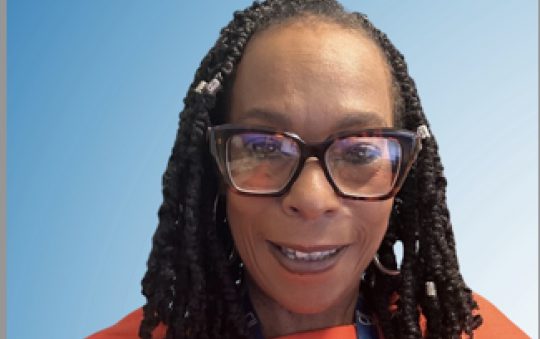
We all love June because it’s the beginning of summer, which means backyard cookouts, warm weather, and vacations. It is also Men’s Health Month and Black Music Month, marking the perfect time and way for Black men to go above and beyond yearly check-ups, regular exercise, and improved eating habits.
Black music is more than entertainment; it is art, social commentary, and therapy. It’s a powerful tool for mental health that helps us recognize, express and deal with emotions we didn’t know we had. I want our brothers to address their health holistically and not just focus on their physical care but also on preserving their mental health.
According to the American Psychological Association, about 26% of Black men ages 18 to 44 who experienced daily feelings of anxiety or depression were likely to have used mental health services, compared with 45.4% of non-Hispanic White men with the same feelings. While there is no substitute for professional care in addressing more serious mental health issues, there are simple self-care solutions to dealing with the everyday struggles of moodiness, lack of motivation, and sadness.
And music can be one of those ways. It is a part of our DNA and our culture. We have all heard about the positive effects of exercise and enjoying time with friends and family to boost our mental well-being, and the connecting thread for these activities is usually music.
Raise your hand if you remember Club Quarantine with DJ Derrick “D-Nice” Jones during the early days of the pandemic. Broadcasted through Instagram Live, D-Nice played non-stop from his LA home old-school hip-hop, grown-folks R&B, and soul, with a dash of salsa or Afrobeat for good measure.
It was a 12-hour mix of dancing and therapy. A virtual party where old friends connected, and new friendships were made. There was a who’s who of on-camera appearances, including former FLOTUS Michelle Obama, Diddy, Kerry Washington, Rihanna, and Chaka Khan, and grew from 250 to 100,000 “party-viewers” within a few hours of the initial launch. Most importantly, the virtual club reminded us of the power of Black music.
According to Harvard Health Publishing, researchers have been trying to determine the best way to use music for release, relaxation, and rehabilitation. Recent studies show that music interventions which include listening, singing, or playing music, can significantly improve mental health and result in more minor improvements in physical health-related quality of life.
Let’s unpack five ways music can bolster mental health:
Elevates Mood: Listening to music releases dopamine, the brain’s feel-good neurotransmitter. This chemical reaction explains why your favorite song can instantly lift your spirits.
Reduces Stress: Research shows that listening to music for just 10 minutes contributes to healthier responses to stress by lowering cortisol levels, slowing heart rate and reducing blood pressure.
Boosts Motivation: Music can strengthen social connections and enhance your workout by diverting focus from the challenges of exercise and reducing the perception of fatigue.
Combats Depression: Music therapy has been found to decrease depressive scores significantly by providing a positive distraction and improving mood.
Improve Well-being: Participating in group musical activities, like dancing, singing in a choir or playing in a band, can improve self-esteem, promote social bonding, and reduce feelings of loneliness.
As we continue to celebrate Men’s Health Month and Black Music Month, let’s use this summer to promote the importance of mental health and the role music can play in our wellness journeys and the lives of Black men.
For music to lift your spirits that the whole family can enjoy, check out DJ D-Nice’s Homeschool – 80’s Edition playlist on Spotify: https://open.spotify.com/playlist/37i9dQZF1DX8Lj01u3MgX5
To find mental health support and services for anxiety, depression, trauma, relationships issues, and family problems, visit: https://www.plannedparenthood.org/planned-parenthood-los-angeles
Kara James is a Nurse Practitioner that has provided direct clinical care to patients since 2015. As an evidenced-based clinician and activist, Kara’s work is framed through racial equity and anti-racism. She also plays a vital role in Planned Parenthood’s Black Health Initiative by promoting holistic well-being, sexual health, and reproductive justice for Black communities in Los Angeles.




